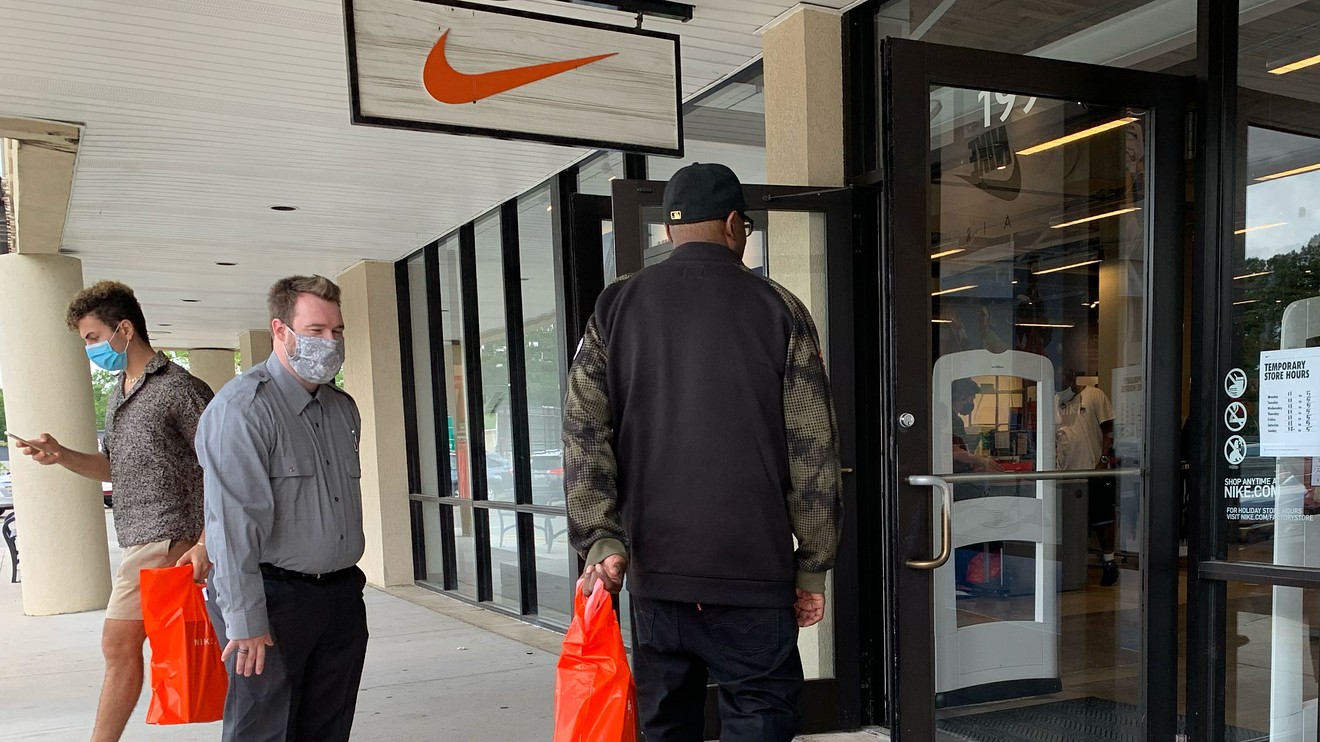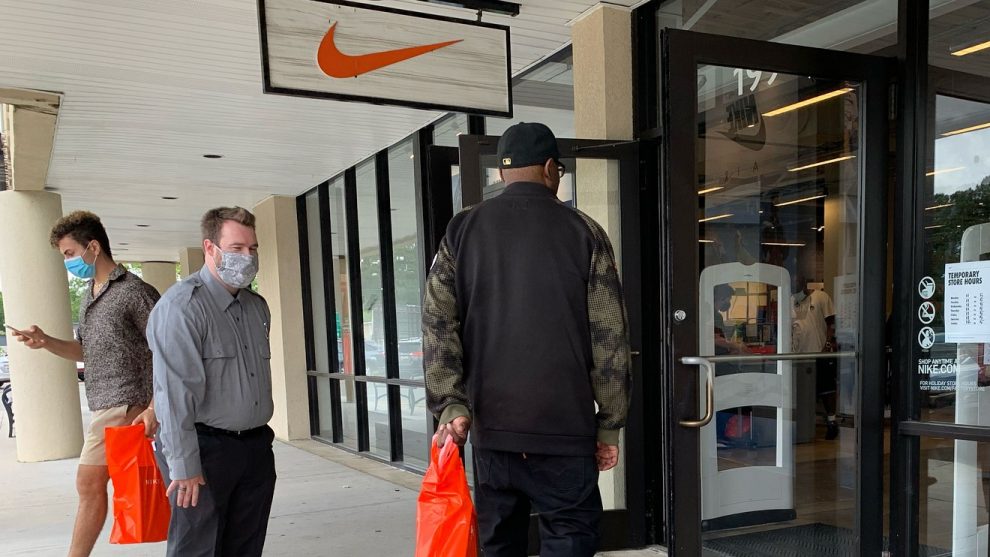
U.S. stocks are indicated lower on Thursday after the main benchmarks put in their worst one-day skid since June 11, amid growing signs that COVID-19 cases are accelerating, snarling efforts to reopen several states and threatening the economy’s ability to snap back from the deadly outbreak.
Investors will contend with a barrage of economic updates, including a report on weekly jobless claims, a final reading of GDP and an update of the health of the country’s biggest banks, which will come after the close of Thursday trade.
How are the benchmarks performing?
Futures for the Dow Jones Industrial Average YM00, -0.65% YMU20, -0.65% fell 138 points, or 0.5%, at 25,262, those for the S&P 500 index ES00, -0.50% ESU20, -0.50% declined 12.25 points, or 0.4%, at 3,037.25; while Nasdaq-100 futures NQ00, -0.09% NQU20, -0.09% were flickering around the neutral line at 10,010.
On Wednesday, the Dow DJIA, -2.71% shed 710.16 points, or 2.7%, ending at 25,445.94. The S&P 500 SPX, -2.58% fell 80.93 points, or 2.6%, to end at 3,0501.33. The Nasdaq Composite COMP, -2.19% gave up 222.20 points, or 2.2%, finishing at 9,909.17, a day after booking a fresh record closing high. All three indexes registered their worst day since June 11.
What’s driving the market?
The U.S. recorded a one-day total of 34,700 newly confirmed COVID-19 cases, the highest level since late April, the Associated Press reported, using data compiled by Johns Hopkins University.
The resurgence of the deadly disease will delay the restart of businesses that have been shut due to the epidemic. Investors have struggled to understand how an economic rebound can take place amid a resurgence of the viral outbreak.
On Wednesday, Apple Inc. said it would shut seven stories in the Houston area following a sharp rise in cases, after last week reclosing some locations in Florida, Arizona, North Carolina, and South Carolina, according to reports.
Walt Disney Co. postponed the reopening of California theme parks, including Disneyland, which had been scheduled to start reopening July 17.
New York, New Jersey and Connecticut announced 14-day quarantines on Wednesday on visitors from states with high COVID-19 infection rates. The “travel advisory,” which impacts residents of nine states, underscores concerns about the pace of business activity resuming after lockdowns imposed to contain the spread of the pandemic.
Still, it’s unusual for the market to appear newly rattled by a rise in cases that should be expected in a highly infectious disease. Sebastien Galy, Nordea Asset Management’s senior macro strategist, says its seems illogical.
“The haughty answer is that somehow the market is deficient in its logic,” he wrote in a Thursday research note. “The standard economic answer is that this is about the resolution of risk through time (non-separable preferences) like a billiard ball hitting for the first strike. It is simply difficult to fathom the complex interactions (behavioral explanation),” he said.
Investors continue to get a better sense of the economic toll the pandemic has taken.
In the latest data, due out 8:30 a.m. Eastern Time Thursday, for the week ended June 20, economists polled by MarketWatch predict new jobless claims will fall slightly to 1.38 million.
Financial firms may be in focus during the session ahead of what’s expected to be a closely followed report on the health the banking sector conducted by the Federal Reserve. The so-called bank stress test has been conducted on the nation’s largest financial institutions annually since 2009 in the aftermath of the 2007-’08 financial crisis.
The Fed has said that banks entered the crisis in a strong position, but analysts believe that the length of the pandemic could erode the balance sheets of some institutions as credit losses mount—a point investors will be on the lookout for. That report isn’t expected to call out individual financials but discuss the sector broadly.
Last week, Fed Vice Chairman Randal Quarles said the regulator asked banks to refrain from discussing results of the tests until June 29 “to provide for a more orderly dissemination of information to the public.”
Meanwhile, data for the session also includes the third and final reading of first-quarter gross domestic product, the official scorecard of the health of the U.S. economy, which is expected to show that the economy contracted at an annualized pace of 5%, according to consensus estimates of economists polled by Econoday.
A report on orders for long-lasting goods, or durable goods, for May is scheduled at the same time as claims, as is an advance report on international trade for May.
Fed speakers for the day include Dallas Fed President Robert Kaplan at 9:30 a.m., Atlanta Fed President Raphael Bostic at 11 a.m., and Loretta Mester, the president of the Cleveland Fed at 12 p.m. Kaplan and Mester are voting members of the Federal Open Market Committee this year.
Which stocks are in focus?
- Darden Restaurants DRI, -6.02% the operator of Olive Garden and LongHorn Steakhouse, said Q1 sales were 70% of year-ago sales, just missing analyst expectations, but also said that 91% of its restaurants were open with some capacity as of June 22. Q1 sales of $1.27 billion just edged analyst expectations of $1.26 billion. Shares were down 1.3% in pre-market trade.
- Rite Aid Corp. RAD, -1.98% is slated to report its quarterly results before Thursday’s opening bell.
- McCormick & Co. Inc. MKC, -0.08% was also scheduled to release its results ahead of the open.
- Nike Inc. NKE, -1.80% is set to report results after the close of trade Thursday.
- Walt Disney Co. shares DIS, -3.87% may be in focus after the entertainment and theme park giant said it was delaying the reopening of its California theme parks, including Disneyland, which had been scheduled to start reopening July 17.
How are other assets performing?
West Texas Intermediate U.S. crude CLQ20, -1.36% fell 45 cents or 1.2% to $37.56 a barrel on the New York Mercantile Exchange. In precious metals, gold futures are trading lower, with the August contact GCM20, -0.22% , down $3.90 or 0.2% to $1,761.90 an ounce, two days after hitting an eight-year high.
The 10-year Treasury note yield TMUBMUSD10Y, 0.665% fell 1 basis point to 0.668% as inflows into haven assets continue. Bond prices move inversely to yields.
The greenback was up 0.3% against a basket of its major rivals, based on trading in the ICE U.S. Dollar Index DXY, +0.28%
In global equities, the Stoxx Europe 600 index SXXP, +0.22% was about 1 point higher, at 358.21.
In Asian markets, the Japanese Nikkei NIK, -1.21% was down 1.2%, and Hong Kong’s Hang Seng HSI, -0.50% lost 0.5%.











Add Comment